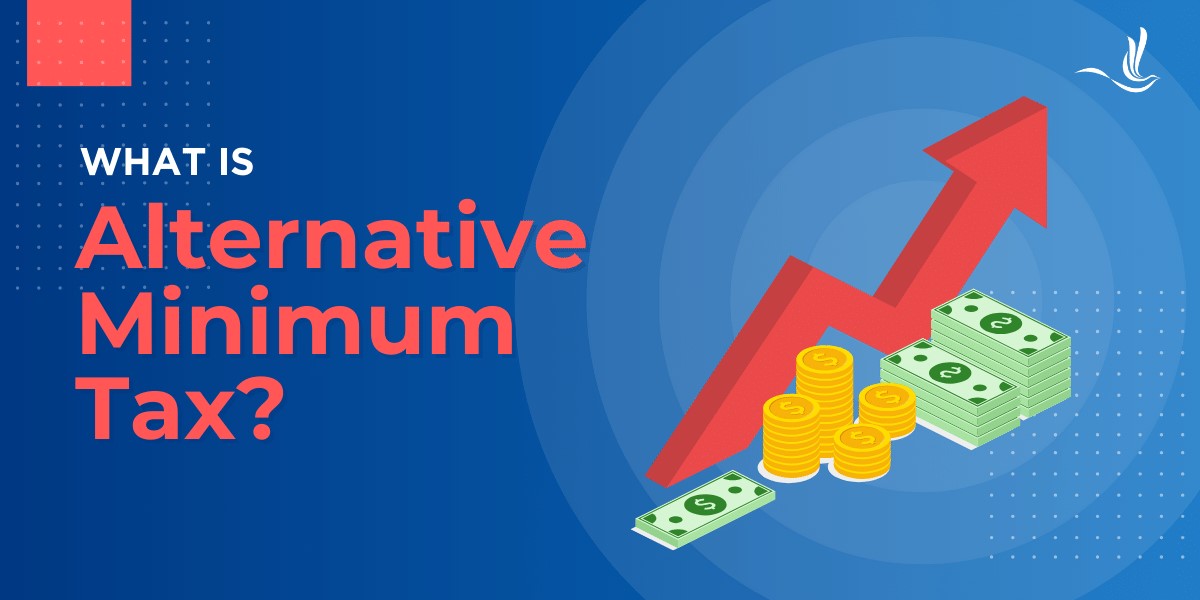Choosing how to pay yourself as an LLC owner is one of the most important financial decisions you’ll make as a business owner. While the LLC structure offers flexibility, that flexibility can be confusing without clear guidance. The way you pay yourself depends on how your LLC is taxed. Selecting the right strategy can make a significant difference in how much you pay in taxes. In this guide, we’ll break down the various options LLC owners have when paying themselves. We’ll also explain the tax implications of each method, and share practical examples to help you make a well-informed decision that minimizes your tax liability.
Understanding LLC Tax Classifications
Limited Liability Companies (LLCs) are unique in that they are not taxed as a separate business entity by default. Instead, the IRS allows LLCs to “choose” their tax status. This decision plays a major role in how profits are distributed and taxed. By default, a single-member LLC is treated as a sole proprietorship, while a multi-member LLC is treated as a partnership. However, LLCs can also elect to be taxed as an S corporation or a C corporation by filing the appropriate forms with the IRS. Each classification impacts how you can legally pay yourself and how those payments are taxed. Let’s explore how compensation works under each classification, starting with the most common setups.
Paying Yourself as a Single-Member LLC
A single-member LLC is considered a disregarded entity for federal tax purposes. This means the IRS doesn’t see the business as separate from the owner. As a result, you don’t pay yourself a salary in the traditional sense. Instead, you take what are called “owner’s draws.” An owner’s draw is when you transfer money from the business bank account to your personal account. You can do this as frequently as you like, assuming your LLC has enough profit to support it. However, because you’re not considered an employee of the business, these draws are not subject to payroll taxes like Social Security or Medicare withholding.
Even though the draws themselves aren’t taxed when you receive them, the net profit of your business is still subject to income tax and self-employment tax. This is regardless of how much money you actually withdraw. For example, say your LLC earns $80,000 in profit and you only draw $40,000. You will still owe taxes on the full $80,000. That amount is reported on Schedule C of your personal tax return and is subject to the standard 15.3% self-employment tax rate (12.4% for Social Security and 2.9% for Medicare). In addition, you’ll also need to pay federal and possibly state income taxes.
How to Take a Draw from Your LLC
Taking a draw from your LLC is a straightforward process. However, it must be handled carefully to preserve the integrity of your business records and protect your limited liability status. Owner’s draws are not considered wages or salaries. That said, there is no need to withhold payroll taxes, but they should be documented correctly.
Always ensure you note the transaction in your accounting system as an “owner’s draw” or “distribution,” depending on your entity type. Never mix personal and business funds. Commingling funds can expose you to personal liability and complicate your bookkeeping. It’s also good practice to keep draws consistent with the financial health of your business.
Paying Yourself as a Multi-Member LLC
When an LLC has more than one owner, it’s taxed as a partnership by default. In this setup, each member receives a distributive share of the business’s profits based on the ownership percentages outlined in the LLC operating agreement. These shares are reported on a Schedule K-1 and included in each member’s individual tax return.
Like single-member LLCs, multi-member LLCs don’t typically pay salaries to their members unless the LLC has elected to be taxed as a corporation. Instead, profits are passed through to the members and taxed at their individual rates. This is whether or not the money is actually distributed. For instance, let’s say an LLC earns $200,000 in profit and the two members each own 50%. They’ll each be taxed on $100,000—even if only $50,000 is distributed to each.
Multi-member LLCs can also provide what’s known as “guaranteed payments” to members who actively work in the business. These payments function similarly to a salary in that they’re payments for services rendered, and they’re taxed as ordinary income. However, unlike wages from a corporation, guaranteed payments are still subject to self-employment tax.
A common mistake is to assume you can structure payments however you like without regard to how the LLC is taxed. But the IRS makes a clear distinction between a business owner who receives profit distributions and an employee who earns wages. Failing to respect this distinction can create problems during an audit.
Electing S Corporation Status for Tax Savings
For many LLC owners, electing to be taxed as an S corporation offers the most tax-efficient way to pay themselves. An S corporation allows you to split your income into two components: a reasonable salary and shareholder distributions. Under this setup, you become an employee of your own company. You must pay yourself a reasonable salary for the work you do. This salary is subject to standard payroll taxes (Social Security and Medicare). That said, you’ll need to run payroll and file W-2 forms just like any other business. The remaining profit, after your salary and expenses, can be distributed to you as a dividend or shareholder distribution. These distributions are not subject to self-employment tax, which can result in significant savings.
Let’s say your LLC earns $120,000 in profit. If you pay yourself a $60,000 salary, you’ll pay payroll taxes on that amount. But the remaining $60,000 can be distributed to you as a dividend, avoiding the 15.3% self-employment tax. That’s a tax savings of about $9,180 assuming the full 15.3% rate applies.
However, the IRS keeps a close eye on S corps to ensure that salaries are not unreasonably low. Paying yourself a $10,000 salary while distributing $110,000 in profits could trigger an audit. It may also lead to reclassification of those distributions as wages, along with penalties for underpayment of payroll taxes. Determining a “reasonable salary” depends on industry standards, the amount of work performed, and the business’s profitability.
When to Consider C Corporation Status
While electing C corporation status is technically an option for LLCs, it is rarely advantageous for small business owners. C corporations are subject to what’s known as “double taxation.” The corporation pays tax on its profits at the corporate level. Then the owners pay personal income tax again when those profits are distributed as dividends. For example, if your LLC, taxed as a C corp, earns $100,000, it might pay 21% in corporate income tax, leaving $79,000. If that amount is distributed to you as a dividend, you’ll pay another 15–20% in capital gains tax (depending on your income). This reduces your net earnings even further.
There are niche scenarios where C corp status makes sense. An example is when you reinvest profits into the business for growth or take advantage of specific tax credits. But for most small LLCs, this structure results in higher taxes and more complex compliance requirements.
Draws vs. Guaranteed Payments vs. Salaries in Multi-Member LLCs
If your LLC has more than one owner and is taxed as a partnership (the default for multi-member LLCs), compensation structures become more nuanced. There are three main ways members might be compensated: draws, guaranteed payments, and—if you elect corporate tax treatment—salaries.
Owner’s draws are the most flexible and common form of compensation. Each member takes a portion of the profits, based on their ownership percentage or as otherwise outlined in the operating agreement. These are not expenses to the LLC and are not taxed at the company level. Instead, members pay tax on their share of profits regardless of whether they take a draw.
Guaranteed payments are another method available to members who provide services to the LLC. These are similar to a salary but aren’t tied to profits. For example, if one partner handles daily operations and another is a passive investor, the active partner might receive a guaranteed monthly payment. These payments are deductible expenses to the LLC and are subject to self-employment tax on the recipient’s individual return.
Salaries only apply when the LLC has elected to be taxed as an S corporation or C corporation. In this case, members who perform work for the company must be treated as employees and paid a reasonable wage through payroll. These wages are subject to standard employment taxes, and the business must comply with payroll filing requirements. Understanding these distinctions and documenting each compensation method in the operating agreement can prevent disputes and ensure you remain in good standing with the IRS.
Best Practices for Minimizing Taxes
No matter which structure you choose, there are universal best practices that can help minimize your tax burden. One of the most important is to keep personal and business finances completely separate. Open a dedicated business bank account and avoid using business funds for personal expenses. It’s also critical to keep thorough records of all draws, salaries, and distributions. If you elect S corp status, work with a payroll provider or accounting software to run payroll and pay the necessary employer taxes.
Another smart move is to work with a CPA or tax advisor who understands small business structures. A professional can help you determine whether an S corp election makes sense, estimate quarterly taxes accurately, and ensure you’re not underpaying or overpaying the IRS. Finally, it’s a good idea to revisit your structure annually. A sole proprietor earning $50,000 might be fine without an S corp election, but once your income grows to six figures, making the switch can significantly reduce your tax liability.
Changing Your LLC’s Tax Classification
If your LLC grows or your compensation strategy changes, it may make sense to change your tax classification. This is done by filing specific IRS forms, depending on your goal.
To be taxed as an S corporation, you must file Form 2553, Election by a Small Business Corporation. This form must typically be filed within 75 days of forming your LLC or within the first 75 days of the current tax year if you’re switching midstream. If approved, your LLC will continue to exist as a legal entity but will be taxed like an S corp moving forward. You’ll need to run payroll, issue W-2s, and file an 1120-S tax return.
To elect C corporation status, you’ll file Form 8832, Entity Classification Election. This is less common for small business owners due to the double taxation issue, but it may be beneficial in specific circumstances—especially if you plan to reinvest profits into the business or seek outside investors.
These elections can carry significant tax consequences, so it’s best to consult a CPA or tax advisor before making a change. Additionally, some states require separate filings to recognize your federal election, so always check local requirements.
Common Mistakes to Avoid
New LLC owners often make the mistake of assuming they can pay themselves a traditional salary without formally electing S corp or C corp status. Doing so can lead to improper tax filings and increased scrutiny from the IRS. Another common error is underpaying yourself as an S corp owner to avoid payroll taxes. This strategy can backfire if the IRS determines that your salary was unreasonably low. If that happens, the IRS may reclassify distributions as wages and impose penalties and back taxes.
Mixing personal and business expenses is another red flag. Not only does this create confusion, but it also puts your liability protection at risk and complicates tax filing. Lastly, forgetting to make estimated tax payments throughout the year can result in penalties and interest. Unlike employees who have taxes withheld, LLC owners must proactively pay their taxes quarterly based on their projected income.
Tax Help for LLCs
Understanding how to pay yourself as an LLC owner is crucial not only for staying compliant, but for optimizing your take-home income. Whether you’re taking owner’s draws, guaranteed payments, or a combination of salary and distributions through an S corp election, the key is to align your compensation strategy with your LLC’s tax classification and income level.
For most small business owners, an S corporation election offers the best opportunity to reduce self-employment taxes—so long as you’re willing to take on the extra administrative responsibilities. Whatever you choose, work with a knowledgeable tax professional to make sure your structure supports your long-term financial goals while keeping your tax bill in check. Optima Tax Relief is the nation’s leading tax resolution firm with over $3 billion in resolved tax liabilities.
If You Need Tax Help, Contact Us Today for a Free Consultation


























